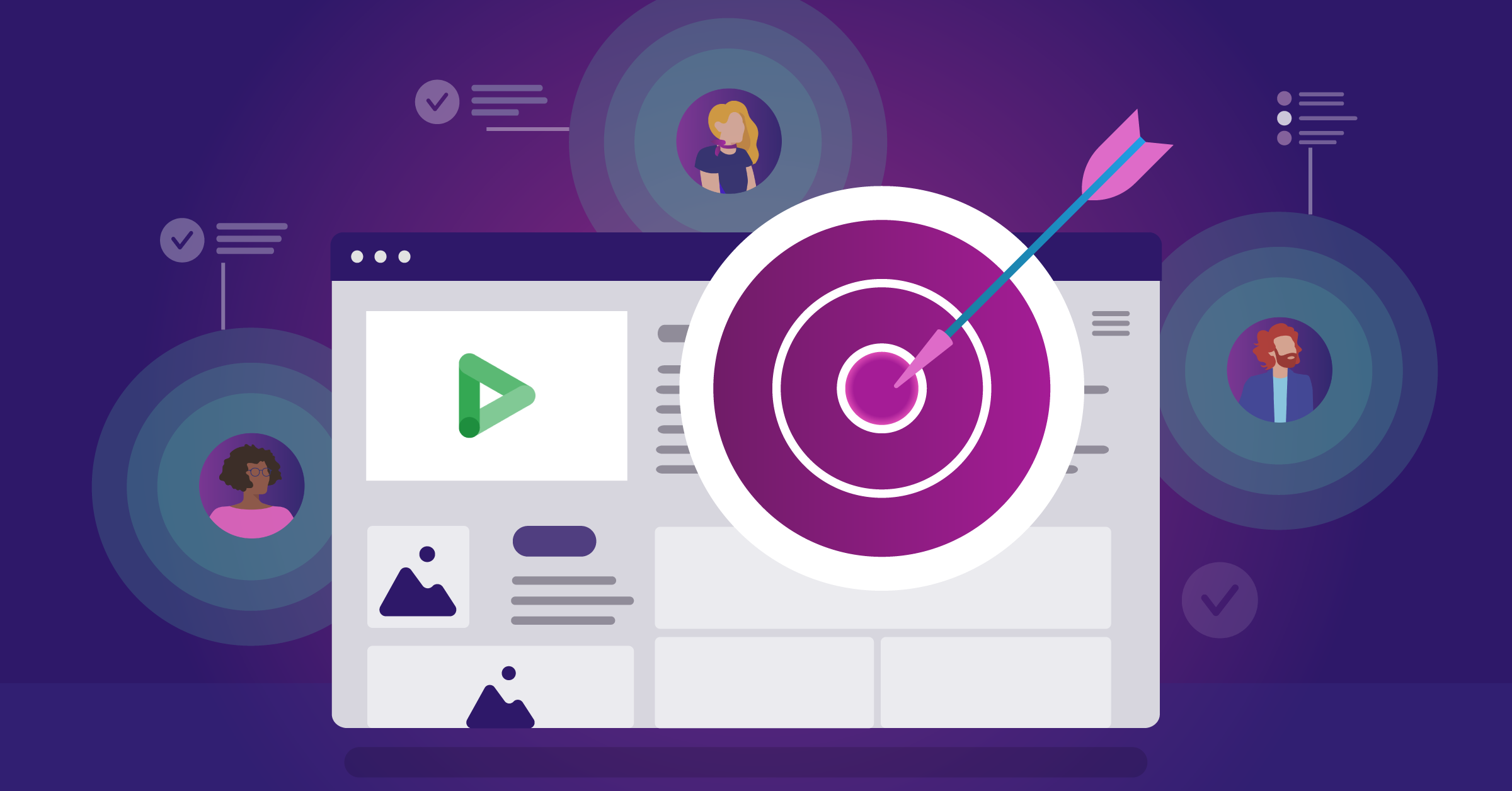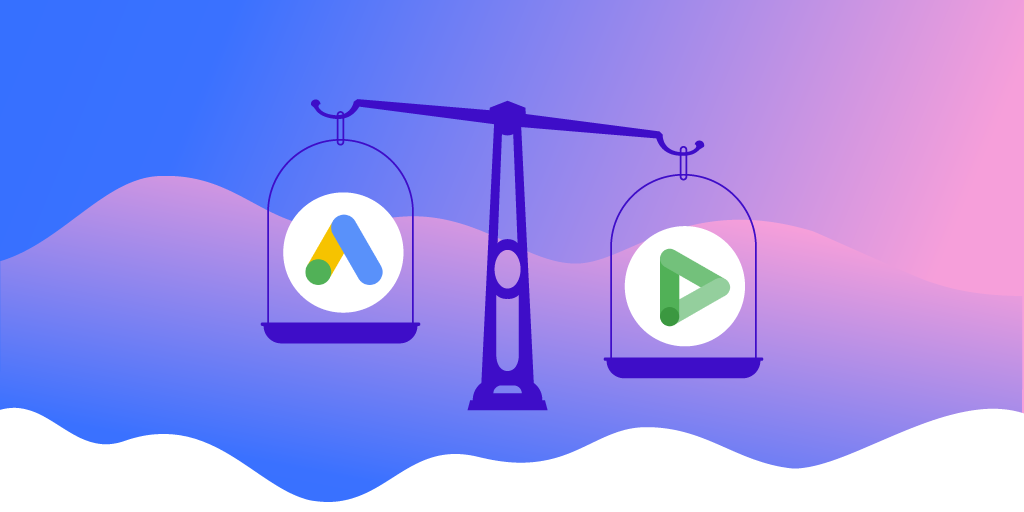Bringing Media Buying In‑House with Google Display & Video 360

This is the year that you bring digital advertising management in-house. That does not necessarily mean a messy breakup with your agency. Maybe it only means evolving to be less reliant on them. This article will help you find the right solution for you and your company.
This article will not attempt to help you with how to break that news — you’ve got other breakup resources in Buzzfeed, eHarmony, even WebMD. Our goal is to help you be successful with some preparation, planning, and support.
We focus on making the transition successful by covering the things that must happen before and after you have the talk with your agency:
- Making the Case - Spoiler alert: Stakeholders will be involved.
- Create a Plan - Cover all the bases
- Setting a Strategy & Goals - It’s not just KPI reports
Spend time planning now, and each part of the process will be easier: break up, transition, internal reboot.
Making the Case
Traditional agencies are a lifestyle. Your boss is used to having an agency. Their boss is used to having an agency. That’s just the way companies have done it for years. Because of this, you may find that some hold the opinion that your company “isn’t in the ad buying business.”
The reality is that you’ve already in-housed a number of critical digital functions. Fifteen years ago, very few companies would be doing project management, content marketing, SEO, digital strategy, social media, inbound and outbound sales, or IT services as part of a typical in-house workflow. The companies that were doing these functions were hiring vendors (I know, I performed each one of these duties as an outside consultant for companies early in my career).
It’s likely that you now have a majority of these roles staffed within your company. You're probably already managing a smaller media buying effort, perhaps around paid search and social media. Convincing the suits might not be as hard as you would expect. Review these arguments that will help you make your case.
You’re not alone. Search Engine Journal cites a study showing 91 percent of companies are bringing some pieces of digital marketing in-house.
Here’s a great Forbes piece mentioning some of the heavy hitters who are doing this right now.
This ball is already rolling downhill at the highest corporate levels. Forrester reports 64 percent in-house at large corporations.
There’s no better time to bring your Pay-Per-Click (PPC) or programmatic media display ad buying in-house. Why are they making changes to their media management team? The next three issues are likely on their list.
Agencies can lack transparency.
I am a Google media trainer and I am always surprised by how often people attend because they do not trust their agency. That’s frightening. These people represent you, influence your public image, and spend your precious money. Anything less than trust in your agency should be addressed, in one way or another.
Agencies can be expensive middlemen.
For each dollar you spend on advertising, a portion never makes it to the channel. Most agencies charge a percentage of ad spend or monthly retainer fee that, once freed, can be reinvested in your most profitable channels to directly affect revenue. Or you can hire an assistant or buy a tool that makes you more efficient or give yourself a raise — all worthy investments of that spare change.
Agencies don’t know your business like you do.
In my early days of account management, I would celebrate a new client by buying a bottle of bourbon older than my career and visiting the library for books on their industry. My desk had eye-level stacks of textbooks on cloud networking or environmental science or international glassware standards. That tactic shortened my learning curve and made me way more interesting at dinner parties but, admittedly, I never knew the industry like my client.
Not totally unlike that scene from Good Will Hunting the therapist asks, “You think I know the first thing about how hard your life has been... because I read Oliver Twist?”
That may or may not be the last Good Will Hunting reference of this guide.
Even more surprising is how many agencies own their clients’ accounts. Eek! All data that you do not own is at risk. It’s at risk of being held hostage or lost or shared. It’s one of our first points in how to pick a PPC agency.
Note: There are some DoubleClick/DV360 scenarios in which an agency might be saving you money by sharing their account but it is always worth comparing to see if a few extra dollars will help you sleep at night thanks to data security.
Crafting a Plan
Understanding how other companies have in-housed their advertising can be very instructive as you start to create your plan. Most companies choose one of these two models:
In-Housing Model: Platform Ownership
You own your own ad serving platform like Google’s Campaign Manager and have an external agency or vendor who creates ads, manages budgets & bids, and is generally in charge of success.
If you are “not in the business of buying ads,” yet, this is a great option. A vendor can help you execute your campaigns and you still own the data.
+ Pros: Own your own data
- Cons: Must work smart to keep up with agency
Success Story: Bounteous is helping an international biotech company bring technology ownership in-house after years of vendor limitations. It’s the best of both worlds because our client can now control their data destiny while granted technology access to their savvy creative agency partner.
In-Housing Model: Full Monty
Ownership of ad trafficking is just the start. You can also own the buying platform and allow your own internal team to manage any or all of the day-to-day campaign activities, from ad creation to buying to optimization to reporting.
+ Pros: Full transparency, better understanding of costs, total platform ownership from targeting & placement to tracking and analysis
- Cons: Staffing for execution and creative creation is key to fully manage daily activities.
Success Story: Cars.com just made the move and brought it all in-house, citing the desire to build deeper relationships with Google and Facebook and be more flexible to respond to customer demands as reasons.
Questions To Get You Started
Bringing PPC & Programmatic display management in-house might be intimidating — scratch that, it should be intimidating. Before making a move, or even thinking about a plan, you should begin with a self-audit.
Soul Searching Question #1:
How would your team add 5 or 25 hours to your work week?
Small accounts with 1-5 campaigns can often be managed in an hour per week, especially if the product offering is relatively static — as compared to a concert venue which would have to update its ads and promotions each week.
Most of us don’t live in a world that simple.
Accounts with dozens of campaigns or products and promotions that change frequently can quickly become someone’s full-time job. Or two. I met a company recently who struggled bringing it in-house, even though they had a full-time dedicated campaign manager on hand. After thirty seconds looking into their accounts, it was obvious that it was far too much work for one human. They needed an external partner to manage the full workload.
On the other end, I worked with a great enterprise company that was newer to digital advertising. We managed all campaign activity as investment grew, and the company hired positions to start to do much of the day-to-day work. We provided training and strategy to help that company become more independent. This organization now manages all media buying and management internally, creating a close synergy with existing marketing activities and making data sharing a breeze.
The key questions to ask are:
What is your business velocity? How often does everything change? More frequent campaign changes require more hands on deck.
What is your growth expectation? If you have 20 product lines and each needs full attention in 2019, that will require more people than if you promote only one product line for the rest of the year.
Soul Searching Question #2:
Who around you (internally) has the skills or time to contribute?
PPC & programmatic media management demands a combination of copywriting, content creation, graphic design for ad creation, organization, data analysis, and reporting. Start looking for those skills internally and making plans to hire or find partners to fill (temporary) gaps.
Soul Searching Question #3:
Who around you (externally) can support you along your journey?
Think about everything your agency did for you: selecting a technology stack, configuring tracking, integrating and sharing data between platforms, translating copy to additional languages. We frequently join companies as they in-house to fill those niche skill sets: data nerd for hire, content superstar, grand master strategist. It is nice to know that someone is there to help when you run into early issues, someone who lives and breathes this stuff each day.
We think these options make sense:
How to Pick the Right Path
- Get Your Hands Dirty But Find Efficiencies
- Needs: Training - Attend a training like Media 201
- Support: Work with consultancy
- Resources #1: Support forum
- Resources #2: Thought Leadership - Oversee Someone Who is Eager
- Needs: Training - Attend a training like Google Ads 101 to learn how to manage a manager
- Trusted advisor for your hire: Work with consultancy - Staff Up & Shell Out For A Veteran
- Needs: How To Hire an Amazing PPC Manager
Setting a Strategy
Let’s be clear here and talk about judging the success of your in-housing efforts, rather than individual campaign success (those metrics are super important, but for a different blog post).
Strategically, you should define the following: timeline, budget management, technology roadmap, and team KPIs.
Timeline
How long will it be until your organization is up and running on its own? If you are bringing a media platform in-house but outsourcing execution, 1-3 months is a great timeline. If you are taking full ownership and staffing, this will be longer.
Budget Management
Who will be ultimately in charge of budget? What is your test budget? There’s no bottom floor for getting started, but if you want to bring everything in-house, you should be comfortable spending $50k/mo on media. Set an initial budget, but leave room to grow.
Technology Roadmap
Where are you today and where do you plan to be in three years? In my role at Bounteous, I help mid-market and enterprise companies plan for the future. The future is all about connecting all of the tools.
Team KPIs
Leave some wiggle room for your current campaign performance stats to drop 10 percent for your first month or so while everyone gets a handle on process. Make sure to set goals beyond cost savings for your in-housing effort. When I work with companies to do this, I encourage them to choose just a few strategic KPIs and ignore the typical performance metrics for the first 90 days. These strategic KPIs should be tied to your largest challenges.
For example:
Attribution
In-housing could bring you better data attribution as you make direct connections between data across various platforms. Set an Attribution KPI for a percentage of data that you can track end-to-end throughout your entire marketing cycle. Here’s a quick guide for connecting Google Analytics 360 with DV360 & Campaign Manager to help. Connecting data sources will provide better attribution.
Budget Activation
Are you spending all available funds? What is your spend rate? Create a dashboard to track total spends. We can teach you how to use Data Studio for this (it’s free!). You don’t even need to buy additional reporting tools.
Time to Launch
Track the number of days from a campaign request to deployment. This is a number you can improve upon throughout your first year. Shorter time to launch means more campaigns per year.
Next Steps
By making key assessments on the above criteria you can begin the process of in-housing your digital advertising. Cost savings, data ownership, and more integrations await you as you begin to embark on this journey. A project like in-housing does present challenges, but overall it’s an exciting opportunity to make technology work better for you and your organization.
How did your assessment turn out? Pretty good? Congratulations! You’ve taken the first step.




